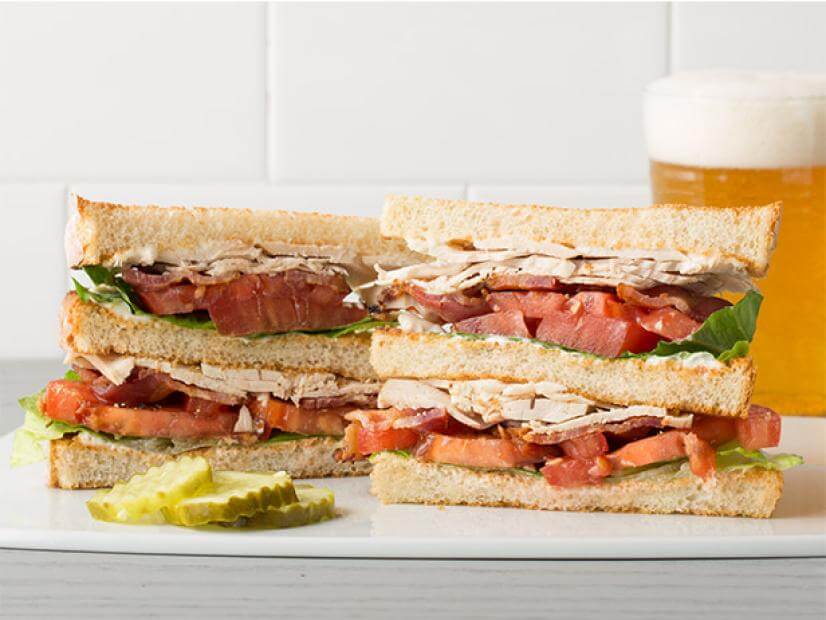Market Overview
‘Sandwich Generation’ needs bread
If you’re at or approaching retirement age, today you live in a different reality than the one you were born into. When you came into this world, there was a concept of someday “becoming a burden to my children,” but it was only a remote possibility. Life expectancy was shorter, and thus was the time adult offspring would have to devote to being eldercare givers.
Also, a single income was enough to provide for a family, so one spouse – the wife, inevitably – would be in position to take on the chore. It helped that she expected this would be part of her life cycle and could rely on her daughter or daughter-in-law to care for her and her husband. Because her children came along while she was still in her 20s, they were fully grown and independent by the time caring for elderly family members became a necessity.
Which brings us to one more bit of nostalgia: Once upon a time, young adults couldn’t wait to get out of the house, launch their careers, and start their own families.
That whole armada has sailed. A baby born today can expect 79 trips around the sun – that’s nine more than those of us of grandma/grandpa age – and we get 10 more than our own nanas and pappies did. Today, almost 60% of married couples with children have dual incomes. One consequence of two careers is that child rearing is delayed, often by about a decade. Lastly – and the covid-19 pandemic gets some but by no means all of the blame for this – a majority of young adult Americans live with their parents. This last phenomenon hasn’t occurred since the Great Depression of the 1930s.
Welcome to the Sandwich Generation – those in middle age who must care for not only their aging parents but also their age-defying children. The term, though, is a little dated. Social workers first observed the Sandwich Generation 40 years ago. The people they were describing – women in their 30s and 40s – are themselves the elders now. And the adult offspring who care for them have their own children at home.
So, the sandwich has gotten bigger. It’s not just people in their 30s and 40s caring for parents and young children. Now there are many in their 50s and 60s caring for parents, children and even grandchildren. Gerontologists call this a “club sandwich”.

Looks great, as long as you’re not the turkey. Credit: Food Network
So, the challenge becomes: How does a late middle-aged couple provide for themselves and three other generations?
Ingredients
“Nearly half of adults in their 40s and 50s are caring for a parent who is 65 or older while also raising or supporting children,” according to three Fiduciary Trust Co. lawyers writing in WealthManagement.com. “To navigate this phase of life, one of the most important steps is to make sure [you have] a comprehensive financial plan in place.”
The website for financial advisors offers this stepwise advice:
- Get organized. List all your assets and liabilities in a net worth statement, then track your income and expenses to arrive at the gap between how much you’re saving and how much you need to save. While this is good advice for anyone, those in the Sandwich Generation also need to parse out income and expenses from parents and adult children to understand the level of support you’re giving them.
- Reset emergency fund.The more people in your household, the more likely an emergency will occur in any given year. That means you’ll need more in the way of liquid reserves.
- Don’t neglect opportunities.We know you’re exhausted physically and emotionally, but unless you want to also be exhausted financially, make sure you’re doing the commonsense things to take care of your own fiscal health. Refinance that debt. Rebalance that 401(k). Take advantage of available tax shields.
- Plan for the needs of children. We won’t go into detail about all the different vehicles created to pass wealth on to children. We did cover it here.
- Take inventory of parents’ financial lives.Mom and Dad aren’t going to like this but, if they’re under your care, you need to know at least some of their financial details. As long as they’re healthy, you can respect their privacy. If and when they can no longer attend to their own affairs, they need to understand you’ll have to step up and have a plan in place to do that. Have them introduce you to their accountant at the very least, who could then advise you regarding health benefits, power of attorney and elements of financial eldercare.
Don’t forget the greens
While we agree with what WealthManagement.com has to say on the subject, they do miss one important element: that bottom slice. What about your children?
It might be uncomfortable, but it might be a good idea to discuss you finances with the kids. Otherwise, they might develop expectations around the First National Bank of Mom and Dad that simply aren’t realistic. Not everyone can pay for all college expenses, a car as a graduation present, the down payment on a house and all those other things that some of their friends might be getting from their parents.
Maybe you intended to throw your daughter a Downton Abbey-themed wedding, but then you were surprised by the sudden addition of a parent with persistent health issues to your household. You can’t do it anymore. What do you tell her?
You never know how much your children can do to support themselves until you make it clear to them that they have to try.
Garnish
Maybe you, as a Sandwich Generation member, have to bring home the bacon. And the cheese. And the tuna, lettuce, tomatoes and coleslaw.
But you don’t necessarily have to provide all the bread. Your parents very likely have some passive income and some assets they can sell if need be. If your kids are still at home, that suggests that perhaps they’re not making all they expected to, but they’re still making something and it need not all be spending money.
Your financial advisor can help you ensure that your parents live comfortably, you reach your own financial goals, and your accumulated wealth finds its way to the next generation. But taking those first steps toward providing for your multigenerational family is on you. As long as you can, build your sandwich on a foundation of artisanal seven-grain brioche.
Otherwise, you might be toast.



